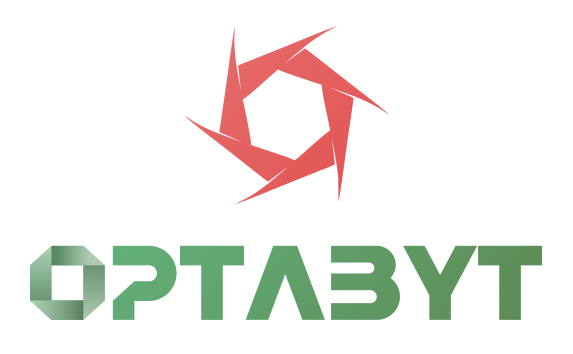
Table of Contents
ToggleSSL Implementation Norway – Secure Your Website with HTTPS in the Norwegian Market
Table of Contents
Introduction
In Norway’s increasingly digital economy, data security and user trust are more important than ever. Whether you’re running a personal blog, a government website, or a high-traffic e-commerce platform, SSL implementation in Norway is a critical step toward securing your online presence.
This guide explores what SSL is, why it matters in the Norwegian market, how it improves SEO, and how to implement it correctly on your website.
What is SSL?
SSL (Secure Sockets Layer) is a security protocol that encrypts data transferred between a web server and a user’s browser. When SSL is properly implemented, your website URL begins with HTTPS instead of HTTP, and a padlock icon appears in the browser bar—signaling to users that your site is secure.
Today, SSL has evolved into TLS (Transport Layer Security), but the term SSL is still commonly used.
Why SSL Implementation Matters in Norway
🔐 1. User Trust & Brand Credibility
Norwegian consumers are highly security-conscious. A secure HTTPS site shows that you value user privacy and are serious about protecting sensitive data.
📈 2. SEO Benefits
Google has confirmed HTTPS as a ranking signal. SSL can help your site rank higher in search results, especially for local Norwegian searches.
🛡️ 3. GDPR Compliance
SSL encryption helps meet GDPR data protection requirements, which are strictly enforced in Norway and across Europe.
💳 4. Safe E-Commerce Transactions
If you run a web store, SSL is non-negotiable. It protects credit card and personal data during checkout—essential for building trust and preventing fraud.
❌ 5. Avoid Browser Warnings
Modern browsers like Chrome and Firefox flag non-HTTPS websites as “Not Secure,” which can drive visitors away instantly.
Key Benefits of SSL for Norwegian Websites
Data encryption between browser and server
Improved SEO rankings with HTTPS
Required for online payments and BankID
Increased conversions and lower bounce rates
Eliminates browser security warnings
Enhances trustworthiness for Norwegian users
Types of SSL Certificates Available in Norway
| Certificate Type | Best For | Features |
|---|---|---|
| DV (Domain Validated) | Blogs, small websites | Basic encryption, quick setup |
| OV (Organization Validated) | Business and e-commerce sites | Verified company identity |
| EV (Extended Validation) | Banks, large corporations | Green padlock + company name |
| Wildcard SSL | Sites with subdomains | Covers all subdomains |
| Multi-domain (SAN) | Multiple websites/domains | Covers up to 100 domains |
How to Implement SSL on Your Website in Norway
1. Choose a Trusted SSL Provider
Norwegian businesses can use providers like:
Domeneshop.no
ProISP.no
Global providers like Sectigo, Digicert, Let’s Encrypt
2. Install the Certificate
Depending on your hosting provider, you can install SSL via:
cPanel or control panel
Let’s Encrypt integration
Manual CSR generation and installation
3. Redirect HTTP to HTTPS
Set up a 301 redirect from all HTTP pages to their HTTPS versions to avoid duplicate content and maintain SEO rankings.
4. Update Internal Links
Ensure all internal URLs use HTTPS, including:
CSS/JS files
Image paths
Menu links
Sitemaps
5. Update Google Search Console & Analytics
Add the HTTPS version of your site
Resubmit your sitemap
Ensure tracking continues without disruption
Common Challenges & Solutions
| Challenge | Solution |
|---|---|
| Mixed content warnings | Update all internal resources to HTTPS |
| Loss of SEO rankings | Use 301 redirects and notify Google |
| Certificate expiration | Set auto-renewal or monitor with alerts |
| Misconfigured installation | Hire a developer or request support |
Estimated Cost of SSL Implementation in Norway
| SSL Type | Cost (NOK/year) | Implementation Time |
|---|---|---|
| Free SSL (Let’s Encrypt) | 0 | 1–2 hours |
| DV SSL (Basic) | 300 – 700 | 1–2 hours |
| OV SSL (Business) | 900 – 1,500 | 2–3 hours |
| EV SSL (Premium) | 2,000 – 5,000+ | 1–2 days (includes validation) |
Industries That Require SSL Implementation in Norway
E-commerce and Retail
Legal and Financial Services
Healthcare & Clinics
Educational Institutions
Government & Public Sector
Media & Publishing
Startups & SaaS platforms
Frequently Asked Questions (FAQs)
1. Is SSL required by law in Norway?
While not mandatory by law, SSL is essential for GDPR compliance, especially when collecting personal data.
2. Can I get a free SSL certificate?
Yes, Let’s Encrypt provides free DV certificates. Most Norwegian hosting companies offer easy integration.
3. Does SSL improve my Google ranking in Norway?
Yes. HTTPS is a known ranking factor, and Norwegian searchers prefer secure sites.
4. How often do I need to renew SSL?
Most certificates are valid for 1 year. Let’s Encrypt SSLs renew every 90 days (usually automated).
5. Can I install SSL myself?
Yes, if you’re familiar with cPanel or server configuration. Otherwise, it’s best to hire a developer.
6. Will SSL affect my website speed?
Only slightly. Modern servers support SSL with minimal performance impact, especially if HTTP/2 is enabled.
7. Can SSL be used on WordPress or Shopify?
Yes. Both platforms fully support SSL. WordPress may require plugin support; Shopify includes SSL by default.
8. Is wildcard SSL better for subdomains?
Yes. It secures your domain and all its subdomains under one certificate.
9. What is the green padlock or company name in the address bar?
This indicates an EV SSL certificate—used for high-trust sites like banks and corporations.
10. Do you offer SSL implementation services?
Yes. We help businesses in Norway configure SSL, migrate to HTTPS, and ensure full compliance.
Conclusion
SSL implementation in Norway is no longer optional—it’s a requirement for secure, SEO-optimized, and GDPR-compliant websites. Whether you’re starting a new business or upgrading your online store, implementing SSL boosts user trust, protects sensitive data, and improves your visibility on Google.
If you’re ready to secure your website with professional SSL setup tailored for Norwegian standards, we’re here to help.
👉 Let’s implement SSL for your website—fast, secure, and 100% compliant.
